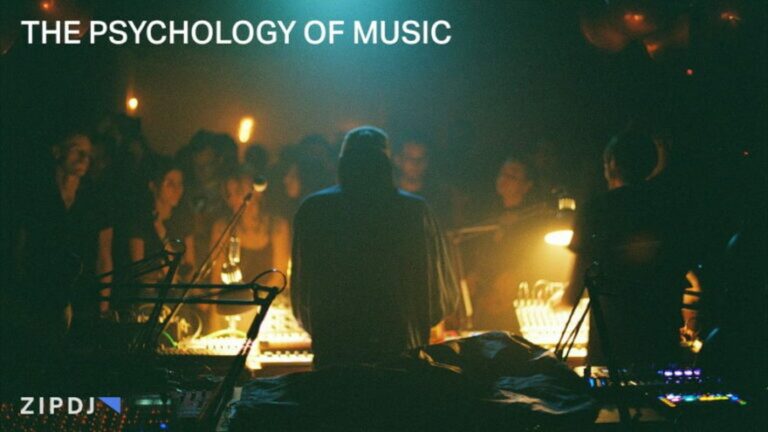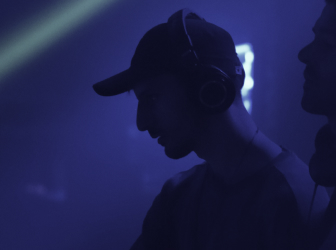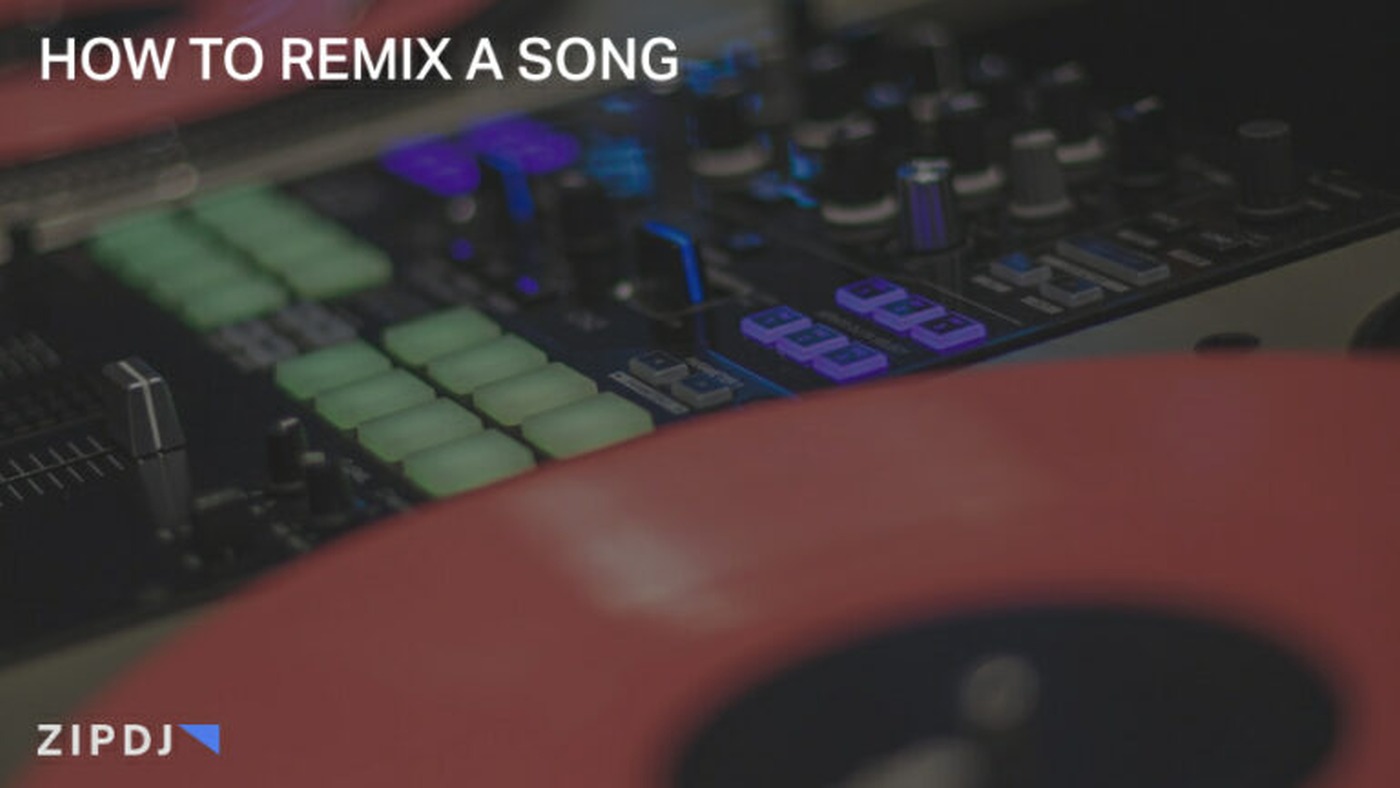The Psychology of Music: Everything You Need To Know In 2025

The psychology of music is a constantly evolving area of research that impacts people’s everyday lives.
From improving our mental health by reducing negative emotions to alleviating physical pain, music has broad-ranging applications.
This article breaks down everything you need to know about how music affects our brains and what this means for our health and well-being.

The Psychology of Music: Everything You Need To Know In 2025
The impact of music on an individual’s emotional state of mind is complex, involving scientific and psychological insights.
We’ve outlined these influences and explored how sound waves impact brain chemistry before moving on to its psychological effects.
Now that we’ve outlined our approach, here’s everything you need to know about the psychology of music in 2025:
A Quick Look At Sound Waves
The best DJ apps for mixing often display each track’s sound waves to indicate where the peaks and troughs exist in the song.
These sound waves resemble a series of pulses that compress molecules in different ways as they move through the air.
Sound waves are present in everyday life just as in music, combining to create a near-infinite expression of noises.
In music education, understanding sound waves is one of the core principles that must be understood when composing music.
Sound waves exist on different frequencies, and how these frequencies are balanced together is at the heart of music therapy.
They also form the principal characteristics of music, including loudness, pitch, and timbre, changing their emotional expression.
How Our Brains Process Sound
The ways in which we interpret music are influenced by several key processes that occur in our brains.
Once an instrument or singer has created sound waves, they pass through the human ear canal before reaching the eardrum.
From here, the eardrum vibrates and sends the music to the cochlea, covered in hairs that shift with each sound wave’s vibration.
The brain then recognizes these signals causing the many different reactions that music psychology research has sought to understand.
A broad variety of emotional and physiological responses can be achieved depending on the combination of sound waves used in music.
These various effects on the brain are fully understood by the highest-paid DJs in the world, who are experts at using sounds effectively.
This includes understanding how to use low-frequency basslines to create drama and tension, as well as the urge to dance.
Music’s Effects On The Temporal Lobe
The temporal lobe plays a crucial role in the psychological functioning of music and is best known for its role in language comprehension.
As such, it’s something music listeners of all types utilize when they process the singing vocals in their favorite music.
Specific cortical regions within the temporal lobe are engaged when listening to music, transforming the words into meanings.
Two specific subregions, the Broca’s area, and the Wernicke’s area, are heavily involved in analyzing and forming words.
While the temporal lobe is predominantly concerned with language, it nevertheless remains engaged in other aspects of music.
It also helps the brain to process melodies and harmonies performed by other instruments and influence the emotional experience.
The Amygdala & Music
The amygdala is perhaps the most sensitive area of the brain when it comes to how music affects our emotional state of mind.
Depending on the music, the amygdala can significantly control emotional expression, resulting in intense feelings from the listener.
Music can activate and downregulate the amygdala, with many studies demonstrating its capacity for improving mood.
As the brain’s “fight-or-flight” mechanism, the amygdala can be influenced by the nature of the music genre and associated emotions.
This ability to shift the listener’s mood can be felt when listening to some of the best DJ sets of all time as the music evolves through the mix.
Whereas techno generates a sense of urgency with bass and percussion, classical music creates a sense of calmness.
The next time you listen to your favorite music and start to feel a sense of excitement, your amygdala will be doing the hard work.
Improving Cognitive Performance With Music
There has been a great deal of music cognition research that shows how music therapy can be enhanced with the right combination of sounds.
On a basic level, pleasant music can make uncomfortable and difficult tasks more tolerable by relaxing the brain and reducing stress.
While music’s effects vary between people, cognitive psychology has shown consistent trends in different genres.
Playing background music in our everyday lives and incorporating music into our work can increase speed and overall performance.
Optimizing your cognitive functions allows you to learn new skills, whether this is easy DJ transitions or more complex tasks.
Scientific studies also indicate that playing instruments and performing other musical behaviors also improve cognitive performance.
If you’re struggling with learning new things and want to improve the processes, listening to music is a great idea to try.

Using Music For Stress Reduction
Understanding how music can alleviate stress is a great way to improve your mental health as a DJ and perform optimally.
A person’s life is full of daily challenges to mental health and negative emotions that music cognition research seeks to address.
Stress reduction often lies at the heart of music therapy, whether functioning to assist meditation or accompanying surgery.
Music therapists often work closely to determine their patient’s music preferences to optimize stress reduction.
By creating “musical emotions” with particular songs, music therapy works by lowering the production of the stress hormone cortisol.
It also boosts the production of immunoglobulin A, the fundamental cell used to boost the immune system and kill viruses.
Simply slowing down the tempo of music can instantly lower stress levels, calming a person’s heartbeat and relaxing their muscles.
Conversely, raising the tempo for more upbeat music can trigger feelings of positive emotions and optimism in the listener.
People who have successfully incorporated these principles into their daily lives can significantly improve their stress management.
Improving Memory With Music
Music listening and performance are also closely linked to the cerebellum, the part of the brain that coordinates movement.
As such, the cerebellum is relevant for people listening to music and musicians who translate sounds into actions.
When you begin to tap your foot or dance, the cerebellum causes the reaction, making listening to music great for muscle memory.
There are other ways that music can help improve your memory, and research shows positive links between singing and learning languages.
Memorizing information can also be improved by listening to classical music, which increases the accuracy and speed of information recall.
A good rule of thumb worth remembering if you’re considering using music to improve memory is to keep things simple.
Complex and aggressive music can become a distraction, while more neutral-sounding music hits the sweet spot for memory development.
It’s another fundamental aspect of music therapy that continues to be widely researched by psychologists worldwide.
Using Music To Manage Pain
In addition to having a positive impact on mental health, music is also capable of reducing and managing physical pain.
On a basic level, listening to the music preference of your choice serves as a welcome distraction to shift focus away from pain.
Highly anxious people who are absorbed in cognitive processes enjoy many benefits from music when experiencing pain.
The degree of engagement a given person has with the music they listen to is linked with its effectiveness as a pain reliever.
A study of patients who have fibromyalgia illustrated a strong association between music and the reduction of pain.
It pointed to the increasing role of music therapy in physiotherapy and recovery from illness and injuries of all types.
Music even positively impacts surgery processes, with patients who listen to music before an operation getting better outcomes.
It has also been shown to lower the need for medication to manage pain in the days and weeks following surgery.
Improving Sleep With Music
As we’ve explored in more detail above, music can radically alter the level of hormones in the human body.
This includes lowering the stress hormone cortisol, with music helping to put people at ease, release stress, and relax.
One of the most popular music genres for DJs, classical music, is well-documented for enhancing and improving sleep.
With its use of pleasant and harmonic melodies intricately arranged together, classical music is the go-to style for sleep-deprived people.
Another way music can assist with sleeping is through the release of dopamine, another powerful hormone released in the brain.
Dopamine is released when people engage in pleasurable activities such as exercise and eating, promoting general good feelings.
The autonomic nervous system is also assisted by music, calming it down and subsequently lowering the heart rate.
This process promotes low blood pressure, making music therapy important for overall health and avoiding cardiovascular disease.
While the same music doesn’t work for everyone when it comes to improving sleep, classical and easy listening are the most common.
Music To Improve Motivation
Anyone who has listened to energetic music while running or training in the gym understands its power to motivate high performance.
It’s one of the most common tools athletes use to drive them forward and excel in their given field using uptempo tracks.
There is a direct connection between music and physical coordination, not least because we instinctively move to its rhythm.
This means when running or exercising, we often match our heartbeat to the beats per minute of the music we’re listening to.
Music helps motivation in various ways, creating greater focus and attention to detail when performing cognitive tasks.
Fatigue and stress are two of the primary reasons people lack motivation, and as we’ve seen, music is an effective stress reliever.
The positive effect of music on mental fatigue is equally well documented, with listening to new music invigorating thought processes.
Whether you’re working on building a DJ brand or studying for an important exam, listening to music helps you to concentrate.
Alleviating Depression With Music
If you have experience DJing at a wedding, you’ll have noticed how often the slow, sad songs elicit the best reaction from the guests.
While it sounds counterintuitive, sad music can make you feel better simply by virtue of the strong emotional responses they trigger.
Empathy lies at the core of this dynamic, so while the subject of a sad song might be depressing on paper, it still releases oxytocin.
This chemical promotes feelings of calm that become increasingly powerful when combined with the principle of kama muta.
This Sanskrit term translates as “moved by love,” a phrase that cuts to the heart of the music that delivers real emotional meaning.
While this response isn’t a universal experience, it’s nevertheless a common occurrence in around 25% of the population.
Music therapy utilizes various genres to help alleviate depression and isn’t primarily focused on exploiting the sad music hypothesis.
In addition to music written explicitly for meditation and other related purposes, classical music is frequently used for depression.
The therapist will again work closely with the patient to narrow down the music that alleviates their depression.
They will also encourage them to actively participate in making music, whether through singing or playing instruments.
By encouraging self-perception and self-expression, music therapy helps people listen to music in a way that promotes happiness.
Summary
Understanding how music can impact individuals’ psychology can help you overcome many physical and mental health issues.
It can also transform a good DJ set into a perfect mix, making it easier to read the crowd and create engaging musical journeys.
As research into the psychology of music reveals new insights, its role in therapy and entertainment will continue to evolve.
Discover a broad range of genres by signing up to ZIPDJ for complete access to an entire music library.
Not a member ?
Join Today for Unlimited Music Downloads. Visit zipdj.com for more information.



